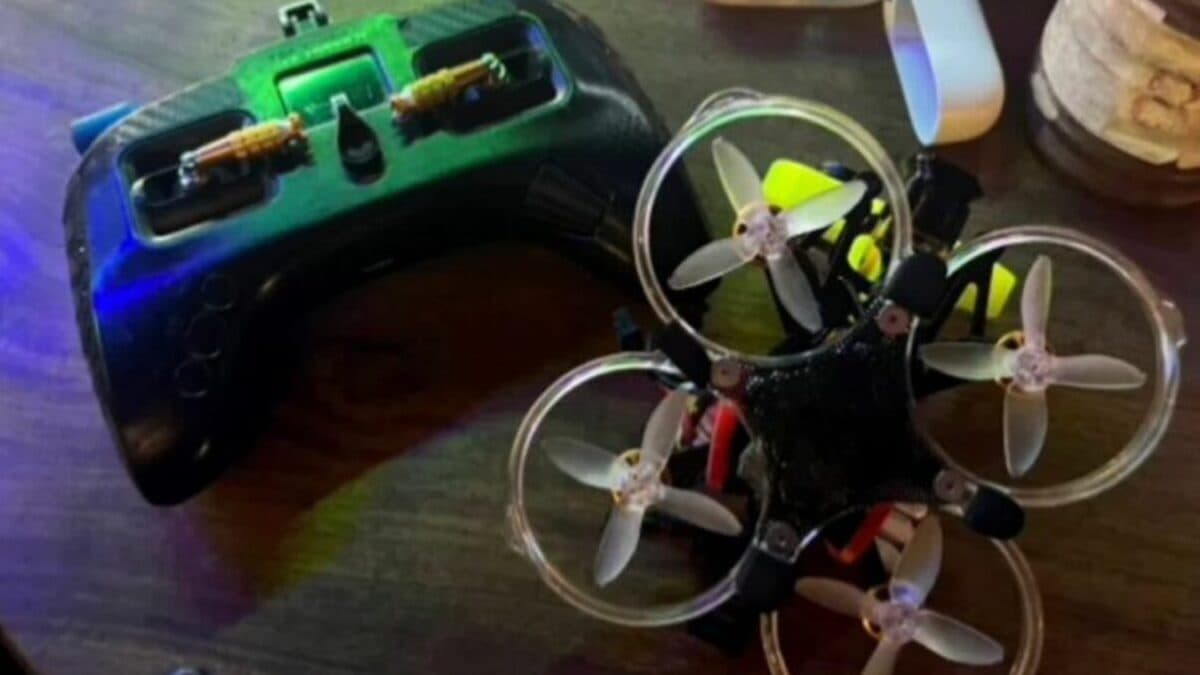Singaporean man arrested in Pattaya for flying drone during nationwide ban
A 44-year-old Singaporean tourist was arrested in Pattaya after flying a drone over the city’s famous Walking Street, violating Thailand’s nationwide ban on unmanned aerial devices. The restriction, introduced amid border tensions with Cambodia, remains in force until further notice.

- The Singaporean, surnamed Goh, was detained on 7 August for flying a drone without authorisation in Pattaya’s Walking Street.
- Thailand has banned all drone operations nationwide due to heightened military security following border tensions with Cambodia.
- Goh faces up to one year in prison or a fine of 40,000 baht if convicted under Thai aviation law.
THAILAND: A Singaporean tourist was arrested in Pattaya for operating a drone to capture overhead footage of a busy pedestrian street, in breach of a temporary nationwide drone ban imposed by Thai authorities amid rising tensions along the Cambodia–Thailand border.
The 44-year-old man, identified by Thai media only by his surname Goh, was detained at around 12.20am on 7 August along Pattaya’s famous Walking Street in the Bang Lamung district. The area, popular for its nightlife, entertainment venues and dense evening crowds, is one of the city’s most heavily patrolled zones.
Arrest and investigation
According to The Thaiger and other local reports, Goh had launched his drone to film the vibrant night scene from above. Police said he was operating the unmanned aerial vehicle without authorisation from the Civil Aviation Authority of Thailand (CAAT).
Officers from the Pattaya City Police Station arrested him on site and seized several items including the drone, remote control, spare lithium batteries, control glasses, and a black shoulder bag.
Through an interpreter, Goh reportedly told investigators that he was an avid photographer and was unaware of the drone restriction. However, police noted that the nationwide ban had been widely publicised in Thai media and at popular tourist locations.
Charges and penalties
Goh faces charges under Section 78 of Thailand’s Aviation Act of 1954 for flying a drone without a permit. The offence carries a penalty of up to one year’s imprisonment, a fine not exceeding 40,000 baht (approximately S$1,600), or both.
Authorities confirmed that formal charges have been filed, and the case will be referred to the Royal Thai Police for further action.
Similar incident earlier in August
The arrest comes just days after a Swedish tourist was caught flying a drone near a Pattaya beach on 3 August. That individual was released with a warning, but his equipment was confiscated.
Thai media reported that law enforcement agencies have stepped up patrols in popular tourist areas to enforce the drone prohibition, citing concerns over unauthorised aerial recordings during ongoing security operations.
Thailand’s nationwide drone ban
The Civil Aviation Authority of Thailand (CAAT) issued the temporary ban on all drone flights across the country starting 30 July, citing national security reasons. The restriction is expected to remain in place until 15 August, or until the government issues further notice.
The move followed increased military activity along the Thai–Cambodian border, where security forces have been placed on heightened alert. Military units have been authorised to intercept or destroy any unmanned aircraft deemed to pose a threat.
Thailand’s acting Prime Minister, Phumtham Wechayachai, said on 6 August that the government had “tightened national security controls, including drone regulation,” following the arrest of a Cambodian soldier accused of espionage.
He added that, moving forward, drone permits would only be approved for agricultural purposes and limited to non-sensitive zones outside the seven border provinces.
Rising scrutiny of drone operators
Thailand’s authorities have long maintained strict controls over drone use, requiring both drone registration and operator licensing under CAAT regulations. Foreign visitors who wish to fly drones must typically apply for permits in advance, detailing their intended flight zones, duration, and purpose.
The latest ban, however, overrides all existing approvals. Tourists and residents alike are prohibited from operating any unmanned aircraft without explicit clearance from Thai military or aviation authorities.
Law enforcement agencies in Pattaya have since warned visitors to “stay informed of temporary restrictions and comply with aviation safety regulations,” emphasising that ignorance of the law is not a valid defence.
Tourist reaction and implications
The incident has drawn attention from both local and international travellers, many of whom have expressed concern over the lack of clear signage or communication regarding the temporary ban.
Travel forums and expatriate groups have since circulated advisories reminding drone enthusiasts to check the CAAT website or consult local authorities before conducting any aerial photography.
Pattaya, one of Thailand’s busiest coastal destinations, attracts millions of tourists each year, many of whom document their trips using drones and action cameras. The enforcement of the drone ban, though temporary, underscores the Thai government’s ongoing priority of national security amid regional uncertainties.
Broader regional context
The tension along the Thai–Cambodian border has prompted increased surveillance and restrictions across several provinces. The Thai military has conducted joint patrols and deployed additional radar monitoring systems to detect unauthorised aircraft.
Officials have not disclosed when the drone restrictions will be fully lifted, but said the measure remains “strictly necessary to safeguard national interests.”
For now, authorities are urging all visitors to comply with the restrictions and avoid aerial photography until further notice.







